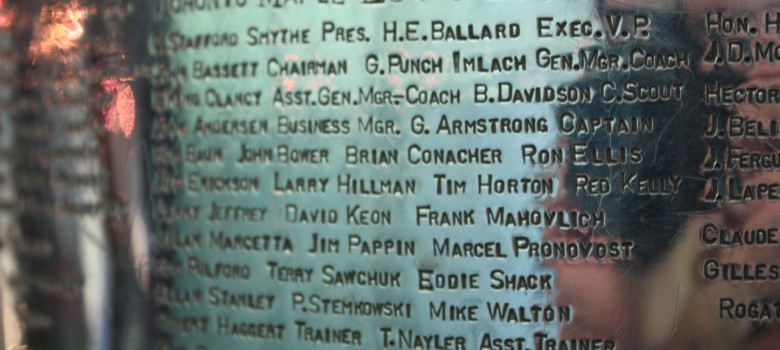In recent weeks, there has been growing talk of the need for the Toronto Maple Leafs to engage in full scale demolition of the current roster (as a long-suffering Leaf fan, I approve). The call for an overhaul comes as fans recognize that minor tinkering has resulted in years of mediocrity and that real change requires more drastic reforms. While the Leafs and the Copyright Board of Canada operate in entirely different worlds, they share a key similarity: the desperate for a complete reset.
The problems with the Copyright Board have been well-chronicled: the industry has been unhappy with many of its decisions (see the Tariff 8 decision), its rulings on fair dealing have been firmly rejected by the Supreme Court of Canada (“flawed”, “unreasonable” and “skewed” were some of the comments), it has been forced to admit errors that resulted in procedural unfairness, its processes are flawed, its decision making takes years, and the public is largely excluded from the process. As I noted last year:
“The exclusion of the public stands in sharp contrast to the CRTC and Competition Bureau, which have both taken steps in recent years to involve the public more directly in policy making activities, hearings, and other issues. By contrast, the Copyright Board does little to encourage public participation, despite the fact that its decision often have an impact that extends beyond the parties before it. When asked recently about the accessibility and participation concerns, the board pointed to an internal working group as evidence that it regularly reviews its practices and compared itself to the Federal Court of Appeal, noting that ‘of course they [the public] don’t participate, because they don’t really belong there, per se.'”
While many of these issues would be enough to justify major reforms, the latest Copyright Board attempt at change highlights just how broken it is. In November 2012, the Board established an ad hoc committee to examine its operations and recommend reforms to improve efficiency and productivity. The committee is comprised of lawyers that regularly appear before the Board. Nearly two years after the work began, it issued its first report that addresses issues such as how to better publicize proposed tariffs. Among the recommendations:
The Board should consider installing an RSS or other form of feed or information syndication (e.g. a Twitter account) allowing anyone to request in advance to be notified of the filing of proposed tariffs; collectives should be asked to consider doing the same or posting on their web sites links to the Board’s own notices in this regard.
This is real. The committee took almost two years to recommend considering an RSS feed or a Twitter account.
Many of the recommendations are unlikely to achieve very much, which some members of the committee acknowledged (“Another member was of the view that the discussion paper, even if implemented fully, will have a minimal effect on the problems the Committee was asked to address. The recommendations, taken as a whole, do not really address the expressed need to streamline the Board process in order to shorten the time to get tariff matters completed.”).
More tellingly, the report itself was only publicly released after it was posted by Howard Knopf. The Board originally sent the report to a list of 91 intellectual property lawyers identified as the “stakeholders”. It would appear there were no plans to post the report or to consult the public. With the report out in the open, the Board belatedly posted it online and is seemingly inviting anyone to comment (though the letter to “All the Board’s Stakeholders” dated February 5, 2015 was delivered to just the 91 people).
Simply put, the Board does not appear to get it. The impact of its decisions extend far beyond the limited number of parties that participate in the hearing, yet the board thinks its stakeholders are limited to IP lawyers and copyright collectives. Its hearings drag on for years, yet little is done to address the resulting business and legal uncertainty. It issues a handful of decisions each year, yet seems to regard that productivity as on par with other courts, tribunals, and regulators. Tinkering with RSS feeds will not solve the problem. If Industry Minister James Moore is serious about addressing the digital economy, a full tear-down is needed.







